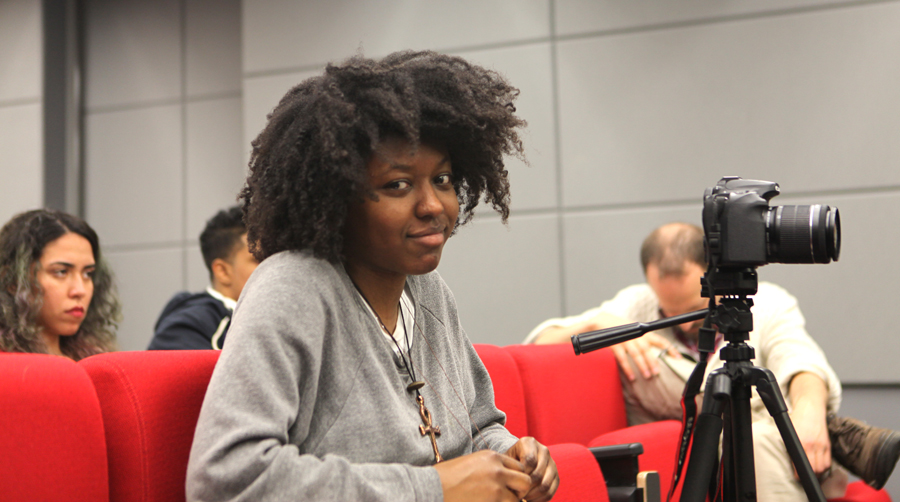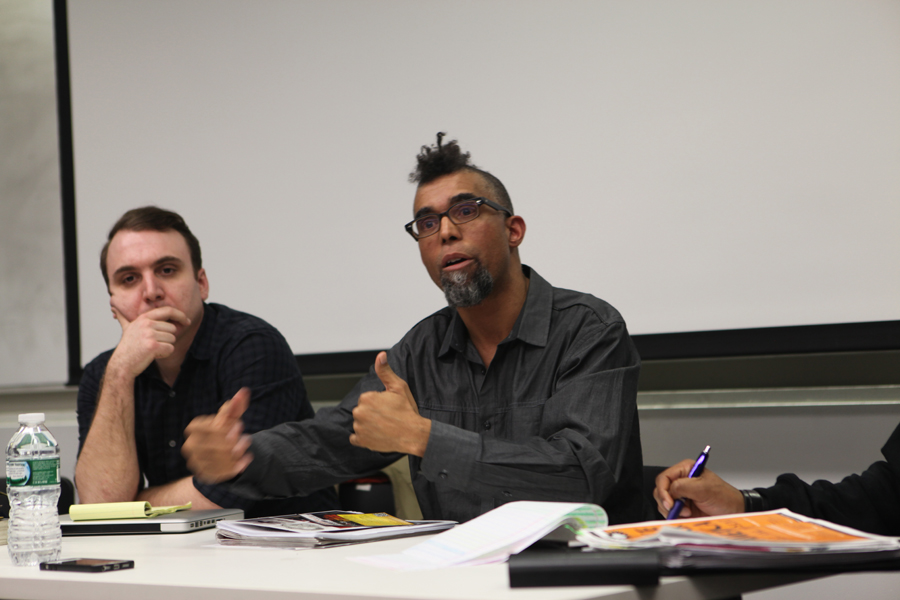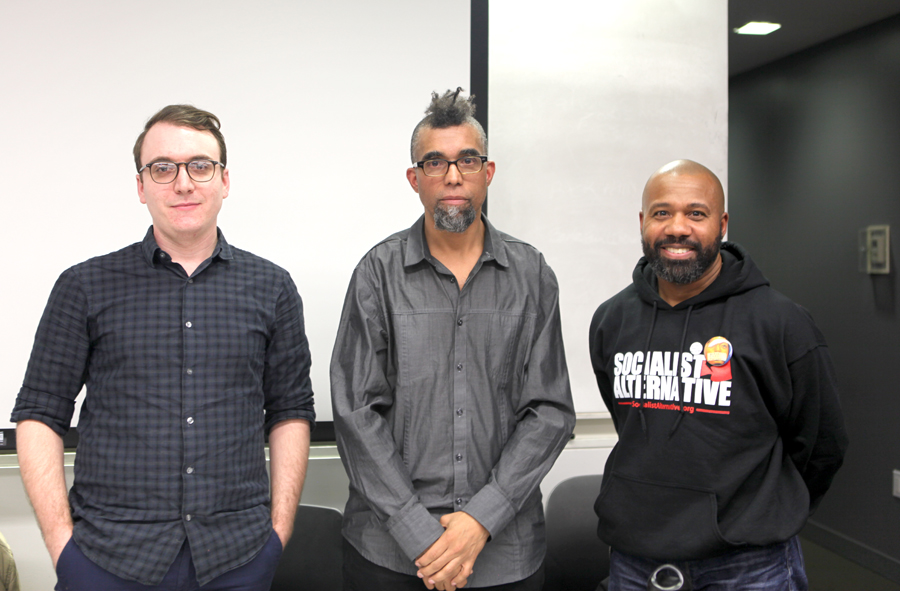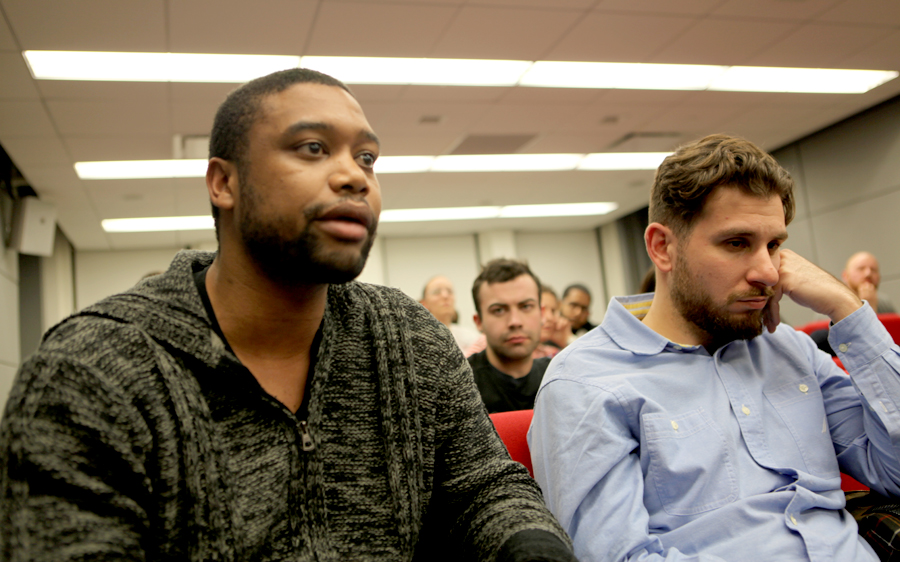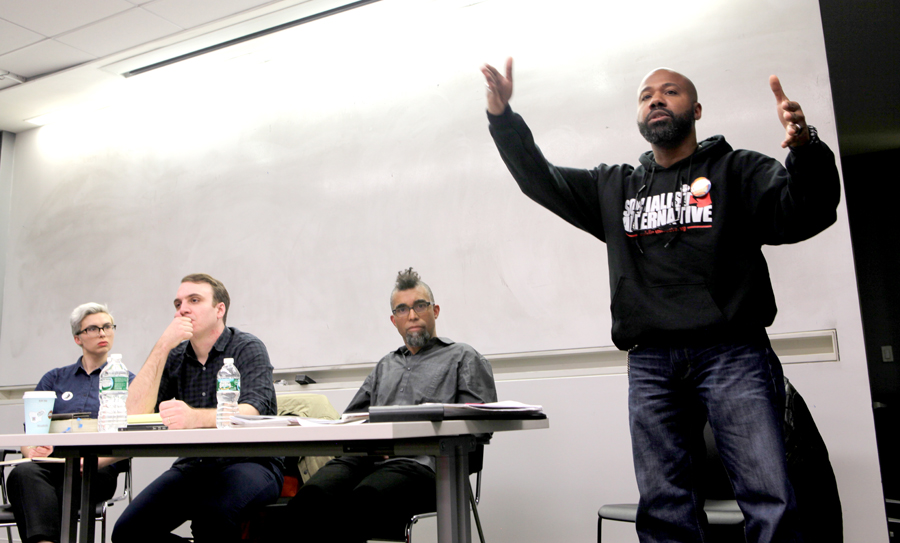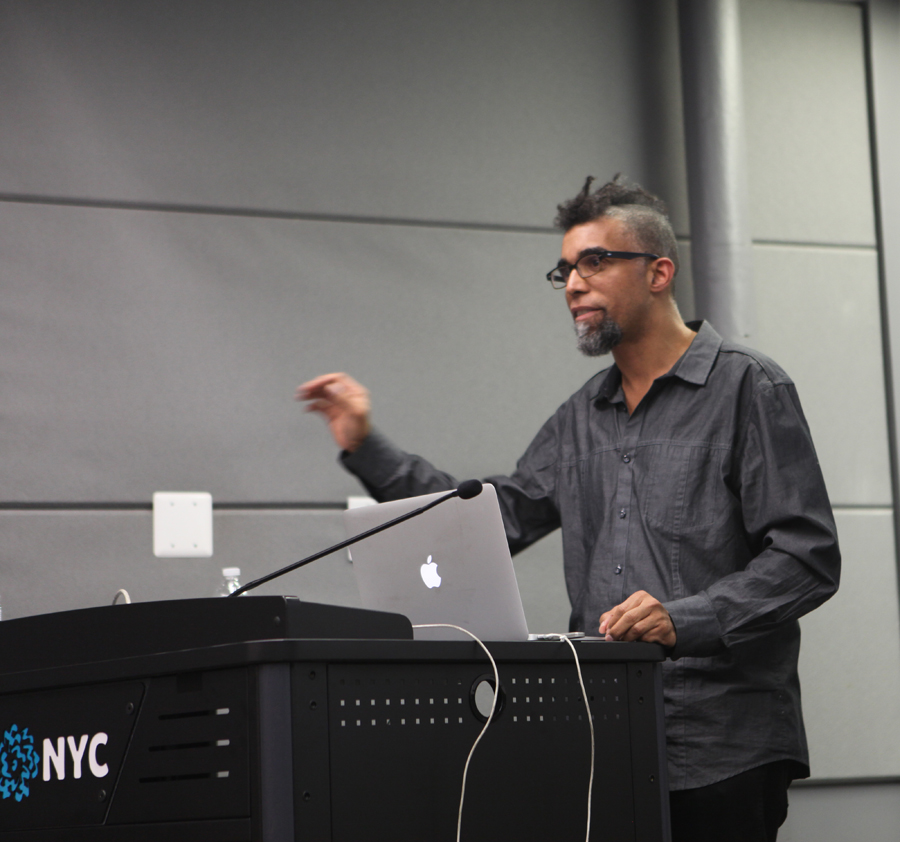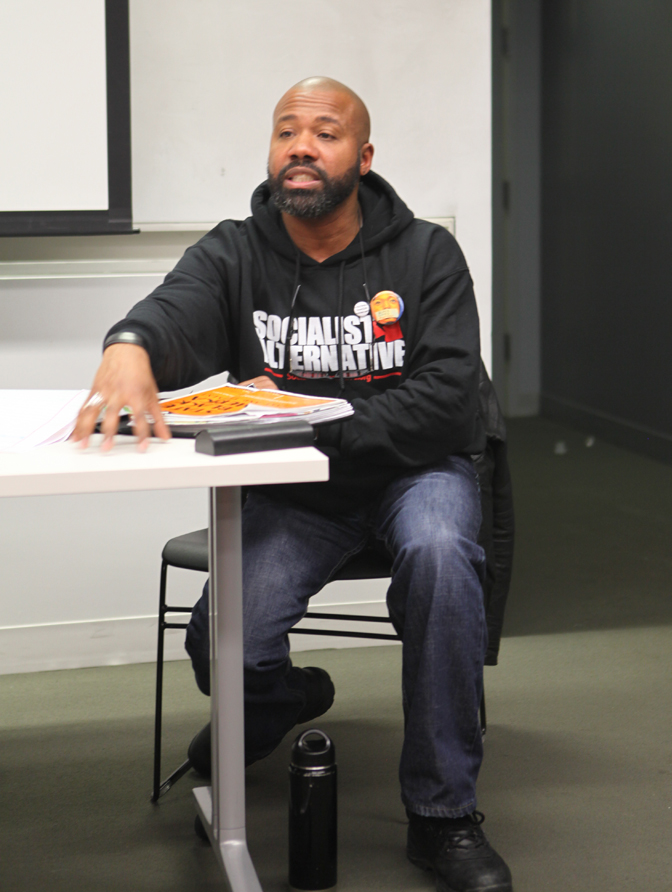Hosted by the Platypus Affiliated Society in conjunction with
the SVA Black Student Union
Panelists:
Ben Blumberg (Platypus Affiliated Society)
Eljeer Hawkins (Socialist Alternative/CWI)
Dread Scott (Artist)
Moderated by: Allison Hewitt Ward (Platypus)
Introduced by: Tiffany Freeman (SVA Black Student Union)
11th March 2015
School of Visual Arts
136 West 21st Street
Room 418F
The widely publicized killings of black men by
police and the resulting movement with its slogan “Black Lives Matter” puts
back on the agenda of a beleaguered American Left a seemingly perennial
question, one that evokes a long history of struggle, longing, and
disappointment. With a black president in the White House having survived or co-opted the #Occupy Movement, the Black Question seems to pose a return to the old platitude that America is racist. At the same time, precisely because of recent history it seems necessary to resist a complacency that threatens to obscure the precise nature of the present, not to mention an adequate analysis of how the Left got where it is today. Such skepticism would appear doubly warranted in light of the fact that the Democrats seem way out in front of this movement, likely soon to have all the necessary police officials and the black vote duly lined up on their side. Given these circumstances and the dangers of yet another historical round of disappointment, another course in diminishing expectations and demobilization, now would seem an opportune moment to reflect
on how this movement might indeed be transformed into the herald of a genuine revival of the Left here in the United States, where it is so badly needed.
The widely publicized killings of black men by police and the resulting movement with its slogan “Black Lives Matter” puts back on the agenda of a beleaguered American Left a seemingly perennial question, one that evokes a long history of struggle, longing, and disappointment. With a black president in the White House having survived or co-opted...
One of four panels held by the Platypus Affiliated Society at Left Forum 2014, from May 30th to June 1st, 2014.
We generally assume that Marxists and other Leftists have the political responsibility to support reforms for the improvement of the welfare of workers. Yet, leading figures from the Marxist tradition– such as Lenin, Luxemburg and Trotsky– also understood that such reforms would broaden the crisis of capitalism and potentially intensify contradictions that could adversely impact the immediate conditions of workers. For instance, full employment, while being a natural demand from the standpoint of all workers’ interests, also threatens the conditions of capitalist production (which rely on a surplus of available labor), thereby potentially jeopardizing the current system of employment altogether. In light of such apparent paradoxes, this panel seeks to investigate the politics of work from Leftist perspectives. It will attempt to provoke reflection on and discussion of the ambiguities and dilemmas of the politics of work by including speakers from divergent perspectives, some of whom seek after the immediate abolition of labor and others of whom seek to increase the availability of employment opportunities. We hope that this conversation will deepen the understanding of the contemporary problems faced by the Left in its struggles to construct a politics adequate to the self-emancipation of the working class.
Speakers:
Jon Bekken
Alan Milchman
James Livingston
A panel event held at the School for Visual Arts on February 25th, 2014.
Panelists:
Alan Akrivos (Socialist Alternative)
Dick Howard (Stony Brook)
Alan Milchman (Internationalist Perspective)
Joseph Schwartz (DSA)
Panel Description:
From the financial crisis and the bank bail-outs to the question of “sovereign debt”; from the Arab Spring to Occupy Wall Street; from the struggle for a unified European-wide policy to the elections in Greece and Egypt that seem to have threatened so much and promised so little -- the need to go beyond mere “protest” has asserted itself: political revolution is in the air, again.
At the same time, the elections in US and recently in Germany, by comparison, to be a non-event, despite potentially having far-reaching consequences for teeming issues word-wide. Today, the people -- the demos -- seem resigned to their political powerlessness, even as they rage against the corruption of politics. Hence, while contemporary demands for democracy to politicize the demos, they are also indicative of social and political regression that asks urgently for recognition and reflection. Demands for democracy “from below” end up being expressed “from above”: The 99%, in its already obscure and unorganized character, didn’t express itself as such in the various recent elections, but was split in various tendencies, many of them very reactionary.
Democracy retains an enigmatic character, since it always slips any fixed form and content, since people under the dynamic of capital keep demanding at times “more” democracy and “real” democracy. But democracy can be like Janus: it often expresses both the progressive social and emancipatory demands, but also their defeat, their hijacking by an elected “Bonaparte”.
What is the history informing the demands for greater democracy today, and how does the Left adequately promote -- or not -- the cause of popular empowerment? What are the potential futures for "democratic" revolution, especially as understood by the Left?
Questions:
1. What would you consider as “real” democracy, as this has been a primary demand of recent spontaneous forms of discontent (e.g. Arab Spring, Occupy, anti-austerity protests, student strikes)?
2. What is the relationship between democracy and the working class today? Do you consider historical struggles for democracy by workers as the medium by which they got “assimilated” to the system, or the only path to emancipation that they couldn’t avoid trying to take?
3. Do you consider it as necessary to eschew established forms of mass politics in favor of new forms in order to build a democratic movement? Or are current mass form of politics adequate for a democratic society?
4. Why has democracy emerged as the primary demand of spontaneous forms of discontent? Do you also consider it necessary, or adequate, to deal with the pathologies of our era?
5. Engels wrote that “A revolution is certainly the most authoritarian thing there is”. Do you agree? Can this conception be compatible with the struggle for democracy?
6. How is democracy related with the issue of possibly overcoming capital?
7. Is there a difference between the ancient and the modern notion of democracy and, if so, what is the source of that difference? Does “real” democracy share more with the direct democracy of ancient polis?
8. Is democracy oppressive, or can it be such? How you judge Lenin’s formulation that: “…democracy is also a state and that, consequently, democracy will also disappear when the state disappears.”

